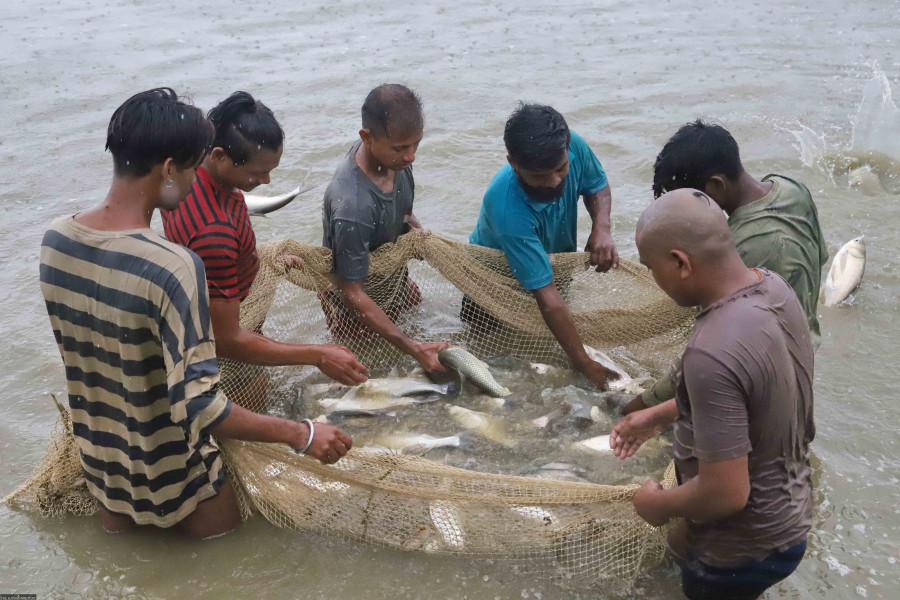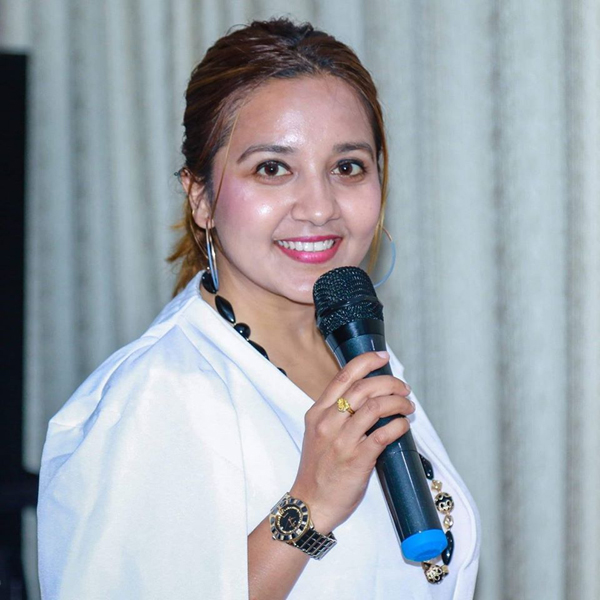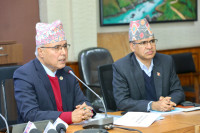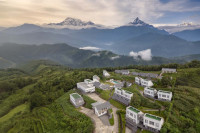Money
Fish raising transforms lives of subsistence farmers
Siyari in Rupandehi accounts for 30 percent of the country’s total fish production.
Sanju Paudel
When Prem Kumar Pokharel arrived in Siyari, Rupandehi from Myanmar four decades ago, the village lacked basic necessities.
The villagers lived a hard life as there was little economic activity, and they were largely engaged in subsistence farming.
Today, the village wears a completely different look. Fish farming has brought prosperity to the residents. Nearly 300 households in the village raise fish on 415 hectares.
“The farmers now earn around Rs330 million annually from fish farming,” said Narayan Kafle, chief of the Prime Minister’s Agriculture Modernisation Project in Rupandehi.
According to the project, around 2,526 tonnes of fish is produced annually in Siyari village alone. Farmers earn Rs270 per kg.
The history of fish farming in Siyari dates from the 1960s. The then King Mahendra, during his visit to Myanmar, then Burma, had encouraged Nepali expats to return to Nepal and contribute to the country.
In the decade following the king’s visit, around 800 families in Burma returned and settled around Siyari. Prem Kumar Pokharel was one of them.
The local economy started to boom with the influx of the returnees. They started farming on government-allocated land and installed tube wells and borings to irrigate the fields.
In the second half of 1970, the construction of the Bhairahawa-Lumbini Ground Water Project started. When it was completed in June 1999, farm productivity increased due to abundant irrigation.
Pokharel and other returnees brought a similar transformation in the economy through fish farming. But the early days were tough. As feed was scarce, they relied on paddy husk and grass.
The commercialisation and modernisation of fish farming gained momentum after 2007 when the Agricultural Development Bank and the Fisheries Development Centre in Thutipipal started providing training and financial aid to the farmers.
Another Myanmar returnee Gopal Prasad Pandey started fish farming in 1978. Initially, he owned a pond on a kattha of land.
Today, his fish farm has expanded to 10 katthas. He also employs a few workers.
Siyari is suitable for fishery due to adequate irrigation facility and favourable soil composition, experts say.
As increasing numbers of locals were taking up fishery, the government launched a Fish Mission Programme in fiscal 2007-08 and continued it till fiscal 2013-14.
The Prime Minister’s Agriculture Modernisation Project was implemented in the fiscal year 2016-17. The scheme helped the farmers with subsidies, training and treatment for fish disease.
It also established infrastructures like hatcheries, nurseries and post-harvest holding centres.
In 2008, more than 50 fish farmers established a cooperative named Shree Jaldevi Matsya Sangh to collectively explore business opportunities.
Ganesh Shahi, former president of the cooperative, said they set up a cold store to keep fish destined for the market.
“The farmers are taking less losses because of the cold store,” said Shahi who’s also a Burma returnee.
The government declared Siyari, Gaidahawa, Suddhodan and Mayadevi rural municipalities as a fishery zone in the fiscal year 2018-19.
“The project has helped the farmers with Rs27.7 million till date to set up new fish ponds,” said Kafle. “In addition, it has also helped the farmers with Rs65 million to buy machinery.”
The project provides a subsidy of Rs300,000 for each hectare to dig new ponds.
“Since the implementation of the project, new ponds have been dug on 200 hectares,” said Kafle.
Thaneshwar Ghimire, chief of Siyari Rural Municipality, claimed that Siyari alone accounts for 30 percent of the country's total fish production.
"The rural municipality provided Rs2.3 million as a subsidy to locals in the last fiscal year," said Ghimire.
The fisheries have contributed to boosting the local tourism industry too. He said that 10 resorts were currently operating in Siyari, each set up with an investment of Rs50 to Rs900 million.
Locally raised fish is the main dish on the menu of these resorts.
Fish farmer Gaurav Gautam built Siyari Fish Village Resort in 2017 with an investment of Rs30 million.
The resort offers a variety of fish dishes to visitors. The guests can also go on boat rides on the fish ponds and stay in the villas erected in the middle of the ponds.
“The customers really like the unique concept of my resort. I earn by serving guests and also by selling fishlings,” said Gautam.




 8.12°C Kathmandu
8.12°C Kathmandu















